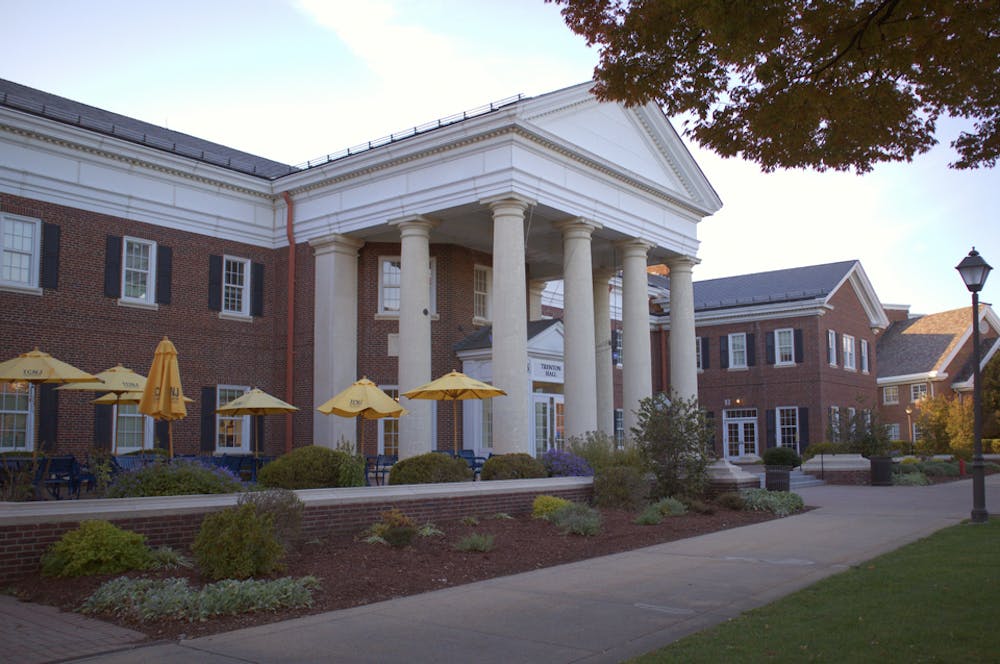By Kate Zydor
Opinions Editor
Shouldering a level of unsustainable debt is a problem faced by many institutions of higher education. That being said, it is no secret that the College is faced with a level of debt that if not managed, has the potential to affect the future of the institution. No matter how you look at the situation, action must be taken to combat the threat of bankruptcy — hence Interim President Bernstein’s somewhat controversial “Lions Plan.”
Following the introduction of this multi-faceted plan in December 2023, six working groups were charged to evaluate the practicality and sustainability of the College’s current practices. Included in the plan are both aggressive cost-cutting and revenue-generating measures. The administration hopes that by implementing some painful and ambitious plans, the College can remediate its current deficits and be on stronger financial footing in the future.
Change is rarely easy and oftentimes unwelcome, especially when that change threatens to impact the services and amenities that we as students enjoy and have become accustomed to. Wondering how the Lions Plan will affect our academic and social experience at the College has created a very real sense of unease among the student community.
In many conversations about the Lions Plan, I have heard students express that its changes will render the College an undesirable place. While I agree that some of the changes being proposed are undesirable, one question remains: Would we rather undergo these alterations or not have a school to attend at all?
Reading through this plan, I was in support of many of its key proposals; namely, the expansion of the three-year bachelor’s programs and undergraduate opportunities for non-traditional students. While much of the plan makes sense, I strongly believe that two key elements of the College should not and can not be changed: the proposed changes to the R. Barbara Gitenstein Library and the academic standards to which we hold ourselves.
Altering these two elements of student life — our sense of community and education — will create significant negative and lasting effects on the overall student experience. A majority of students rely on the library as a key component of their academic success.
Because we have a small campus, the library also acts as a hub for students to come together in an environment that allows for socialization and academic collaboration. A valuable quality of this space is the resources that it provides including physical books, databases and interlibrary loans.
Currently, there are conversations surrounding the responsibility of students to cover the costs of interlibrary loans. If this proposal comes to fruition, this change will counter the College’s core value of academic engagement and oppose its mission of inclusivity. When monetary restrictions are placed on students, we cannot expect them to complete their assignments with the excellence that can be achieved by having open access to these materials.
Speaking of excellence, our college is known for its academic rigor that entails writing and language proficiency, intimate classroom settings and an above-average unit requirement — all of which are being jeopardized by this plan.
Yes, it can be burdensome to take a first-year writing or language course, especially when it does not pertain to your major. Despite this, it is undeniable that these classes instill in us the necessary skills to be successful throughout our academic and professional careers. Writing is a window through which we express our thoughts, feelings and stances on important issues, and second-language proficiency allows us to communicate and interact with a wider and more culturally diverse population.
The College prides itself on its small class sizes that promote individualized learning. This is in large part due to the adjunct professors who generate open spaces in courses that are popular among students. Eliminating these adjunct positions will not only affect the livelihoods of these professors but significantly limit options for students during course registration.
In addition, the course load currently held by adjunct professors will have to be absorbed by tenured professors, many of whom already carry a full class load and act as academic advisors.
Lastly, what sets our college apart from other institutions is the 32-unit requirement that students must meet before graduation. Although lowering this requirement to 30 would align the College with the standard practice of peer institutions, I believe that we would see a decline in qualified applicants who are seeking to distinguish themselves when competing for graduate programs and jobs.
The fact remains that these proposed changes would likely increase revenue and student enrollment. By no means do I disagree that we must adapt our current practices to alleviate the College’s current financial crisis; however, consideration must be given to whether the potential payoff from the above-mentioned changes to its academic and social infrastructure is worth compromising the student experience.
At the end of the day, all parties should strive for one thing — keeping the College’s doors open while maintaining its integrity and reputation for excellence. The College that we know and love will remain as long as we can look at the Lions Plan with an open mind while still advocating to preserve the qualities that make our institution special.
The truth is that tackling hundreds of millions of dollars of debt is no easy feat and it will require compromise and sacrifice to ensure future growth and stability. What is also true, is that as stakeholders and paying customers, we can all use our voices and advocate for what are willing and unwilling to accept. By not advocating for our student experience, we do ourselves a great disservice as investors in our education and our future.







